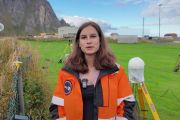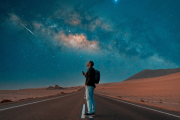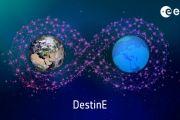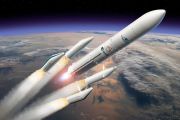
Copernical Team
US Air Force working with SandboxAQ to enhance AQNav GPS protection
 SandboxAQ has secured an SBIR Phase 2B Tactical Funding Increase (TACFI) from the U.S. Air Force (USAF) to advance its AQNav magnetic navigation (MagNav) system. This funding will allow SandboxAQ and its partner, AFWERX, to explore new configurations of the AQNav system, such as a pod-based version, for broader deployment across various aircraft platforms, including unmanned aerial systems.
SandboxAQ has secured an SBIR Phase 2B Tactical Funding Increase (TACFI) from the U.S. Air Force (USAF) to advance its AQNav magnetic navigation (MagNav) system. This funding will allow SandboxAQ and its partner, AFWERX, to explore new configurations of the AQNav system, such as a pod-based version, for broader deployment across various aircraft platforms, including unmanned aerial systems. Sateliot Advances Towards Commercialization Following Launch of Four New Satellites
 Sateliot, the company spearheading the first low-Earth orbit (LEO) nanosatellite constellation utilizing 5G NB-IoT NTN standards, has successfully added four more satellites to its constellation. This launch, part of the company's 5G NB-IoT NTN initiative, is set to enhance global coverage for Mobile Telecom Operators. The satellites were launched on Friday, August 16, at 20:18 CET, aboard a Spa
Sateliot, the company spearheading the first low-Earth orbit (LEO) nanosatellite constellation utilizing 5G NB-IoT NTN standards, has successfully added four more satellites to its constellation. This launch, part of the company's 5G NB-IoT NTN initiative, is set to enhance global coverage for Mobile Telecom Operators. The satellites were launched on Friday, August 16, at 20:18 CET, aboard a Spa Exolaunch Reaches 30th Launch Milestone with Successful Deployment of 42 Satellites on SpaceX Transporter-11
 Exolaunch, a global leader in launch mission management and satellite deployment services, has successfully deployed 42 customer satellites aboard the Transporter-11 Rideshare mission with SpaceX. The launch took place on Friday, August 16 at 11:56 PDT from Vandenberg Space Force Base in California.
This mission is particularly significant for Exolaunch as it marks the company's 30th launc
Exolaunch, a global leader in launch mission management and satellite deployment services, has successfully deployed 42 customer satellites aboard the Transporter-11 Rideshare mission with SpaceX. The launch took place on Friday, August 16 at 11:56 PDT from Vandenberg Space Force Base in California.
This mission is particularly significant for Exolaunch as it marks the company's 30th launc Astronomers Disprove Long-Held Belief About Galaxy Density
 An international team of astronomers has overturned a longstanding belief that stars and dark matter interact in a mysterious way to create uniform density structures across different galaxies. This finding, published in 'Monthly Notices of the Royal Astronomical Society (MNRAS)', challenges a theory that had perplexed scientists for 25 years.
The research team, which includes scientists f
An international team of astronomers has overturned a longstanding belief that stars and dark matter interact in a mysterious way to create uniform density structures across different galaxies. This finding, published in 'Monthly Notices of the Royal Astronomical Society (MNRAS)', challenges a theory that had perplexed scientists for 25 years.
The research team, which includes scientists f Western researchers help identify origins of Martian meteorites
 An international research team has identified the specific origins of most of the Martian meteorites that are now on Earth. They've traced the meteorites to five craters where they were launched off Mars after impact. The craters are located within two volcanic regions on the red planet called Tharsis (the region containing Olympus Mons, the largest shield volcano in the solar system) and Elysiu
An international research team has identified the specific origins of most of the Martian meteorites that are now on Earth. They've traced the meteorites to five craters where they were launched off Mars after impact. The craters are located within two volcanic regions on the red planet called Tharsis (the region containing Olympus Mons, the largest shield volcano in the solar system) and Elysiu NASA Calls for Industry Input on Lunar Logistics and Mobility Systems
 NASA is set to launch a new solicitation under its Next Space Technologies for Exploration Partnerships-2 (NextSTEP-2) initiative, inviting industry to propose studies that will enhance logistics and mobility systems on the lunar surface. This call for proposals is part of NASA's ongoing efforts to develop the necessary infrastructure for long-term human and robotic exploration of the Moon and e
NASA is set to launch a new solicitation under its Next Space Technologies for Exploration Partnerships-2 (NextSTEP-2) initiative, inviting industry to propose studies that will enhance logistics and mobility systems on the lunar surface. This call for proposals is part of NASA's ongoing efforts to develop the necessary infrastructure for long-term human and robotic exploration of the Moon and e Polaris Dawn Mission Set for August 26 to Advance Commercial Space Exploration
 The Polaris Program, focused on testing and developing new spaceflight technology, is preparing to launch its first mission, Polaris Dawn, aboard SpaceX's Falcon 9 rocket on Monday, August 26, 2024. This mission marks a significant step forward in commercial space exploration. Key objectives include testing a next-generation spacesuit during the first commercial spacewalk, attempting to achieve
The Polaris Program, focused on testing and developing new spaceflight technology, is preparing to launch its first mission, Polaris Dawn, aboard SpaceX's Falcon 9 rocket on Monday, August 26, 2024. This mission marks a significant step forward in commercial space exploration. Key objectives include testing a next-generation spacesuit during the first commercial spacewalk, attempting to achieve Rocket engine explodes during test at UK spaceport
 A rocket engine exploded during a test launch at Britain's new spaceport in northern Scotland, officials said Tuesday, in a setback for the UK's fledgling space sector.
No one was injured in Monday evening's incident at SaxaVord Spaceport on the remote island of Unst, said the operator, German rocket manufacturer Rocket Factory Augsburg (RFA).
The company hopes to launch the UK's first v
A rocket engine exploded during a test launch at Britain's new spaceport in northern Scotland, officials said Tuesday, in a setback for the UK's fledgling space sector.
No one was injured in Monday evening's incident at SaxaVord Spaceport on the remote island of Unst, said the operator, German rocket manufacturer Rocket Factory Augsburg (RFA).
The company hopes to launch the UK's first v Juice snaps Moon en route to Earth
 Image:
Juice snaps Moon en route to Earth
Image:
Juice snaps Moon en route to Earth August's supermoon is the first of four lunar spectacles
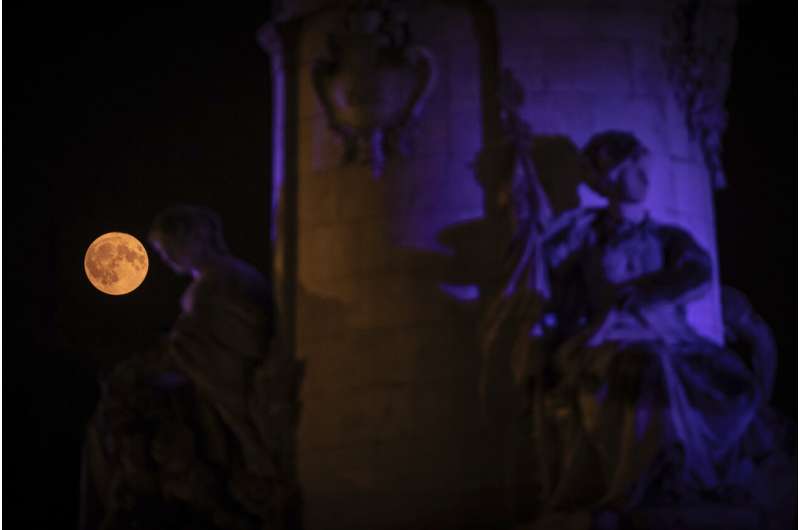
Monday's supermoon is the first of four this year.
During a supermoon, the full moon inches a little closer than usual to Earth. A supermoon isn't bigger, but it can appear that way in the night sky, although scientists say the difference can be barely perceptible.
September's supermoon will coincide with a partial lunar eclipse. October's will be the year's closest approach, and November's will round out the year.
More a popular term than a scientific one, a supermoon occurs when a full lunar phase syncs up with an especially close swing around Earth. This usually happens only three or four times a year and consecutively, given the moon's constantly shifting, oval-shaped orbit.


